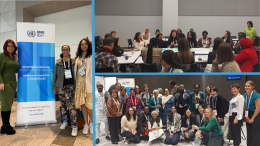The terms colonialism and coloniality can mean different things to different people, especially when coming from different cultures, geographies, histories and disciplines.
Here we describe our use of the terms colonialism and coloniality and how this informs our work. It includes an explanation of the distinction between colonialism and neo-colonialism, and how both colonialism and neo-colonialism relate to other social constructs that create hierarchies and systems of domination and subjugation.
Colonialism and the process of colonisation are terms typically used to describe the control, occupation and exploitation by states of foreign lands and peoples. They are often applied to the colonisation of Latin America, Africa, Asia and the Pacific by European nation states over the course of several centuries prior to the third quarter of the 20th century. The terms are also often attached to the later emergence of the United States (US) as a colonial power and the late 20th century age of American imperialism. Other 20th century examples of occupation of foreign lands (e.g. by the Soviet Union and Japan) are also described in terms of colonialism or colonisation.
However, colonialism doesn’t have to involve direct colonisation through occupation. The term neo-colonialism refers to forms of domination and exploitation that are not predicated upon direct occupation or control. This is done through political, economic and socio-cultural arrangements that institutionalise relationships of dependence or subservience and enable the extraction of wealth and resources.” Kwame Nkrumah, a political theorist who became the first Prime Minister and President of Ghana, explained how countries subject to neo-colonialism have “all the outward trappings of international sovereignty” but are in reality “directed from outside.
To our way of thinking, the combined process of domination-subjugation and exploitation-extraction-appropriation are central and defining features of both colonialism and neo-colonialism. Colonial structures and relationships are ones where states or population groups dominate or subjugate other states or population groups and simultaneously exploiting, appropriating, or extracting resources or benefits for themselves.
Unequal relationships between states have led to the adoption of numerous systems of categorisation for countries according to their relative positions. The term Third World arose as a description of countries that were neither aligned to NATO, nor the Warsaw Pact. The US, Canada, Japan, South Korea and Western European nations represented the First World, while the Soviet Union, China, Cuba, North Korea, Vietnam and their allies represented the Second World. The Third World later became synonymous with poor countries, often with colonial pasts, in Africa, Latin America, Asia and the Pacific. In world systems theory, Third World countries are also described as ‘periphery’ countries that serve the interests of more developed ‘core’ countries in the First World and, to a lesser extent, the Second World .
Broadly speaking, the first, second and third world categorisations have been replaced by the terms Global North and Global South. The Global South describes poorer countries, while the Global North describes more powerful and economically developed countries. The terms are misnomers in that they are not defined geographically: for example, Australia and New Zealand are part of the Global North, and many countries of the Global South are in the Northern Hemisphere.
Countries are also commonly labelled as high-income countries (HICs), upper middle-income countries (upper MICs), lower middle-income countries (lower MICs) and low-income countries (LICs) according to their per capita GNP. Other categorisations describe countries as either ‘advanced’ or ’emerging’; as ‘developed’ or ‘developing’; and as ‘minority’ or ‘majority’.
None of these categorisations are without problems. However, we tend to use the Global North and Global South categories as a blunt mechanism for distinguishing between countries and populations with advanced economies and higher levels of socio-economic development and those countries and populations with higher levels of poverty and under-development.
Importantly, categorisations based on differences in wealth and power between countries can obscure the fact that exploited individuals and communities exist in all countries. In fact, most people living under the World Bank’s $5.50/day poverty line are in lower or upper MICs, while large and growing numbers of marginalised and impoverished people live in HICs. Similarly, although wealthy elites are concentrated in the Global North, the number of billionaires and multi-millionaires in the Global South has grown.
An important aspect of contemporary colonialism is that many of today’s exploitative relationships are rooted in the supra-national economic structures and systems of globalisation. This requires some analysis of the role and power of large oligopolistic transnational corporations (TNCs) and private financial institutions in processes of economic exploitation and wealth extraction. It also means looking at the pattern of domination, control, and ownership of different industries and economic sectors (e.g. the fossil fuel industry, pharmaceuticals and medical technology sector, telecommunications, banking, and insurance, agriculture and food), and how are the profits and negative externalities from these industries and sectors are distributed across the world.
Colonialism may also be conceived of in ecological terms. For example, the bulk of greenhouse gas (GHG) emissions over the past century and a half, predominantly by populations in the Global North, may be likened to an appropriation or colonisation of the atmosphere’s capacity to absorb GHGs. Today, the absence of capacity to accommodate further GHG emissions puts developing countries at a disadvantage. One can also conceive of a colonisation of the earth in terms of the appropriation of critical resources by current and past generations from future generations, and by the occupation by humans of the habitats of other species of animal.
Perhaps there is no better example of the convergence of multiple colonialisms than the extraction of fossil fuels from LMICs in ways that contribute to local dispossession of lands, environmental damage and mis-governance, while the profits from the industry are mainly accrued by a small elite and while the negative consequences of fossil fuel extraction are disproportionately borne by populations in the Global South who have contributed very little to GHG emissions.
Discussions about colonialism also intersect discussions about racism. Racism has been an overt feature of colonialism throughout the centuries. Racist ideologies have not only helped to excuse or legitimise colonial oppression and exploitation, but also fueled particularly brutal and violent forms of colonialism. Notions of racial, cultural or religious superiority have also been used to infantilise, disparage or even dehumanise other races and cultures. Edward Said famously described how negative stereotypical images of Arabs and Muslims are used as an ‘arsenal’ by western states to demonise and help subjugate populations in the Middle East.
Today, racism still exists in many societies despite the unequivocal scientific debunking of claims that there is a biological basis for racial hierarchies and the explicit rejection of racism in the UN Charter and the Universal Declaration of Human Rights. Vestiges of the overtly racist colonialism of the past are still present in various forms including statues and memorials celebrating slave traders, patterns of wealth built upon the foundations of colonial oppression and exploitation, and the more subtle and unconscious biases built into dominant power structures that privilege ‘whiteness’. Worryingly, overt racism also appears to be growing in dominant power structures across different parts of the world.
At the same time, an important feature of contemporary colonialism is that it is organised along class lines with profits and wealth being extracted by a small trans-national elite with weak allegiances to their fellow national citizens, or their religious or racial identity. This trans-national colonialism, operated largely through a combination of trans-national corporations, and international financial institutions, has produced an extraordinary concentration of wealth such that an estimated ten men own as much wealth as the poorest 3.1 billion people. Although the small number of hyper-wealthy individuals with vast fortunes – colloquially referred to as the 0.01% – have national, racial and cultural identities, they may be better viewed as a global class identifiable by extraordinary levels of privilege, economic power and political influence.
Colonialism also has a gender dimension. If colonialism is the existence of unequal relations and the use of that inequality to exploit and misappropriate wealth, large parts of the economic system may be viewed as having been colonised by men. For example, the vast amounts of the care work (e.g. looking after children, the elderly, and the sick and the disabled) done overwhelmingly by women is unmeasured, invisible and unvalued by global economic institutions. The failure to measure and value this work not only perpetuates gender inequality, but also impoverishes society. It is no coincidence that the vast majority of the 0.01% are men. A feminist and gender-sensitive lens is critical for a complete understanding of contemporary colonialism, just as feminist scholarship has been important in illuminating the combination of both racial and gender discrimination in the colonial construction of social hierarchies by European imperial powers in their colonies.
There is a tendency for discussions about colonialism to circle around power asymmetries between countries (and regions) or between racial identities. In this primer, we describe colonialism as a ‘multi-headed beast’ with class-based, inter-generational, ecological and gender facets. However, cutting across this multifaceted conceptualisation of colonialism is the simple meaning of colonialism as a combination of dominance-subservience and exploitation-extraction-appropriation that allows some segments of humanity to benefit at the expense of others.
To reverse colonialism – i.e. to undergo decolonisation – it is necessary to understand how colonialism operates and how it is sustained. This means understanding how power is distributed across society and deployed to enable exploitation, extraction and appropriation. Key forms of power used in colonialism are physical and coercive military power and economic power, which in turn may be converted into political influence and the economic structural violence that keeps so many people oppressed, poor and unhealthy. Additionally, ideas, beliefs and narratives are also a form of power used to buttress colonial systems and relationships.
We have already highlighted racism as an ideology used to drive and legitimise colonialism. False beliefs about national, religious and cultural superiority can also be powerful drivers of colonialism; similarly, sexist and patriarchal ideas, beliefs and narratives. The propaganda deployed to undermine climate science is another example of narratives used to enable ecological colonialism. Finally, there are also many economic ideas, beliefs and narratives deployed to sustain contemporary neocolonialism. These include the portrayal of billionaires as ‘wealth creators’ (rather than ‘wealth extractors’), the myth that excessive profiteering is a necessary or worthwhile cost for driving innovation and progress, and the story that reductions in levels of extreme poverty is evidence of economic systems working well for the majority poor. We use the term coloniality to mean the existence of ideas, beliefs and narratives that help legitimise and sustain colonial hierarchies and that shape the social, political and economic systems that drive unjust resource exploitation, appropriation, and extraction.
This is not a complete discussion about the broad, complex, and multifaceted meaning of colonialism and coloniality. There are missing elements and there are other views and perspectives. We hope for a continued and constructive debate about colonialism and coloniality. More importantly, we hope that these discussions will be translated to changes and tangible progress towards a fairer and more effective Global Health system.



